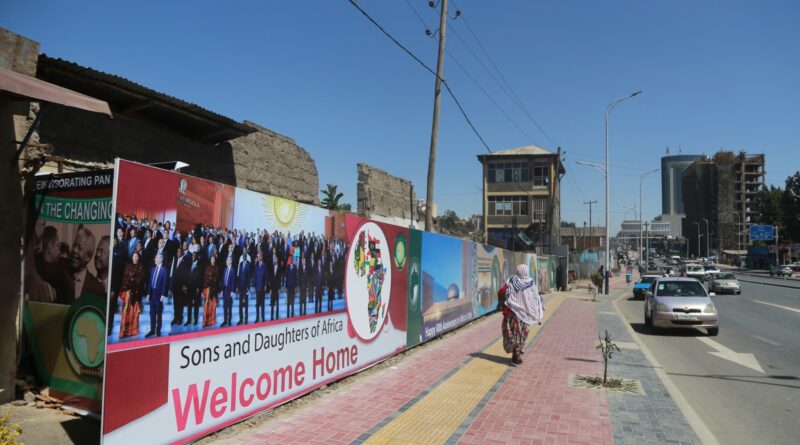Addis Ababa sweeps poor people off the street
When African heads of state flew into Addis Ababa in late February for the 36th African Union Summit, the streets of Ethiopia’s capital city were unusually clean and orderly.
Gone were the beggars at the intersections. Gone were the street vendors hawking vegetables and second-hand clothes. Gone were the teenagers offering roadside shoe-shines and sticks of gum.
Messy construction sites and informal markets were hidden away, concealed by giant billboards plastered with presidential portraits and pithy slogans. “Unity determines Africa’s destiny,” read one. “African solutions to African problems,” another proclaimed.
At the summit, leaders discussed ambitious plans to lift 30 million Africans out of extreme poverty. The talks were held within the gleaming glass-and-steel Chinese-built skyscraper that houses the headquarters of the AU, a building that would not look out of place on the skylines of Dubai or Shanghai.
But the most visible signs of the extreme poverty in Addis Ababa itself were hidden from view. This was no accident.
A number of low-income families in the city said that the beggars and vendors who usually work in the streets had been summarily detained by authorities and kept in detention centres for the duration of the summit.
They were replaced by a heavy police and security presence.
In one incident, according to witnesses, young women who begged near the Hyatt Regency Hotel were bundled into unmarked trucks by policemen. Some were beaten and verbally abused. Some had babies or toddlers strapped to their backs.
The hotel was hosting a number of heads of state and senior diplomats for the duration of the summit.
In Bole, an upmarket suburb near the international airport, the young people who normally work on the streets were absent for the duration of the summit.
People like 20-year-old Henok, who shines shoes on the pavement, had simply disappeared.
Henok’s mother, Almaz Tadesse, had no idea where he was, and when or if he would return. She worried that he would be sent to a prison far from the capital, and that his equipment — purchased with her meagre savings from her time as a domestic worker in Lebanon — would be confiscated.
Henok was released from a detention facility in Addis Ababa the day after the summit concluded. His equipment is missing.
Another mother, whose son makes a living by begging, spent the weekend agonising over his whereabouts. “I did not think begging is illegal, but perhaps the government is making poverty illegal for us poor people,” she said.
Addis Ababa police did not respond to a request for comment.
Daniel Bekele, the head of the Ethiopian Human Rights Commission (EHRC), a state institution, said the commission was aware of the issue.
“The EHRC has regularly received complaints about temporary detention of street children and others as part of security and rehabilitation measures, and we are concerned about it and doing more investigation of its human rights implications,” he said.
According to the World Bank, 27% of Ethiopia’s 120 million population live below the poverty line of $2.15 a day.
Addis Ababa is not unique in trying to remove its poorer residents for the duration of a major international gathering. Last year in Kigali, ahead of the Commonwealth Heads of Government Meeting, Rwandan authorities allegedly rounded up homeless people and beggars from the streets and placed them in an unofficial detention facility.
The push to clean up the city went even further, according to The New York Times. “Some residents said that they had been ordered to renovate or paint their homes or buy banners advertising the country’s tourism industry.”
A Human Rights Watch spokesperson said: “Rwanda’s strategy to promote Kigali as a hub for meetings and conferences often means continued abuse of the capital’s poorest and most marginalised residents.”
Authorities in Uganda did the same thing ahead of the 2007 Commonwealth meeting in Kampala, removing “undesirable” people from the streets to promote a “good image” of the country, according to researcher Sarah Musubika.
And in both Athens and Beijing, vulnerable and itinerant people were forcibly displaced ahead of the 2004 and 2008 summer Olympics, respectively.
This article first appeared in The Continent, the pan-African weekly newspaper produced in partnership with the Mail & Guardian. It’s designed to be read and shared on WhatsApp. Download your free copy here.

